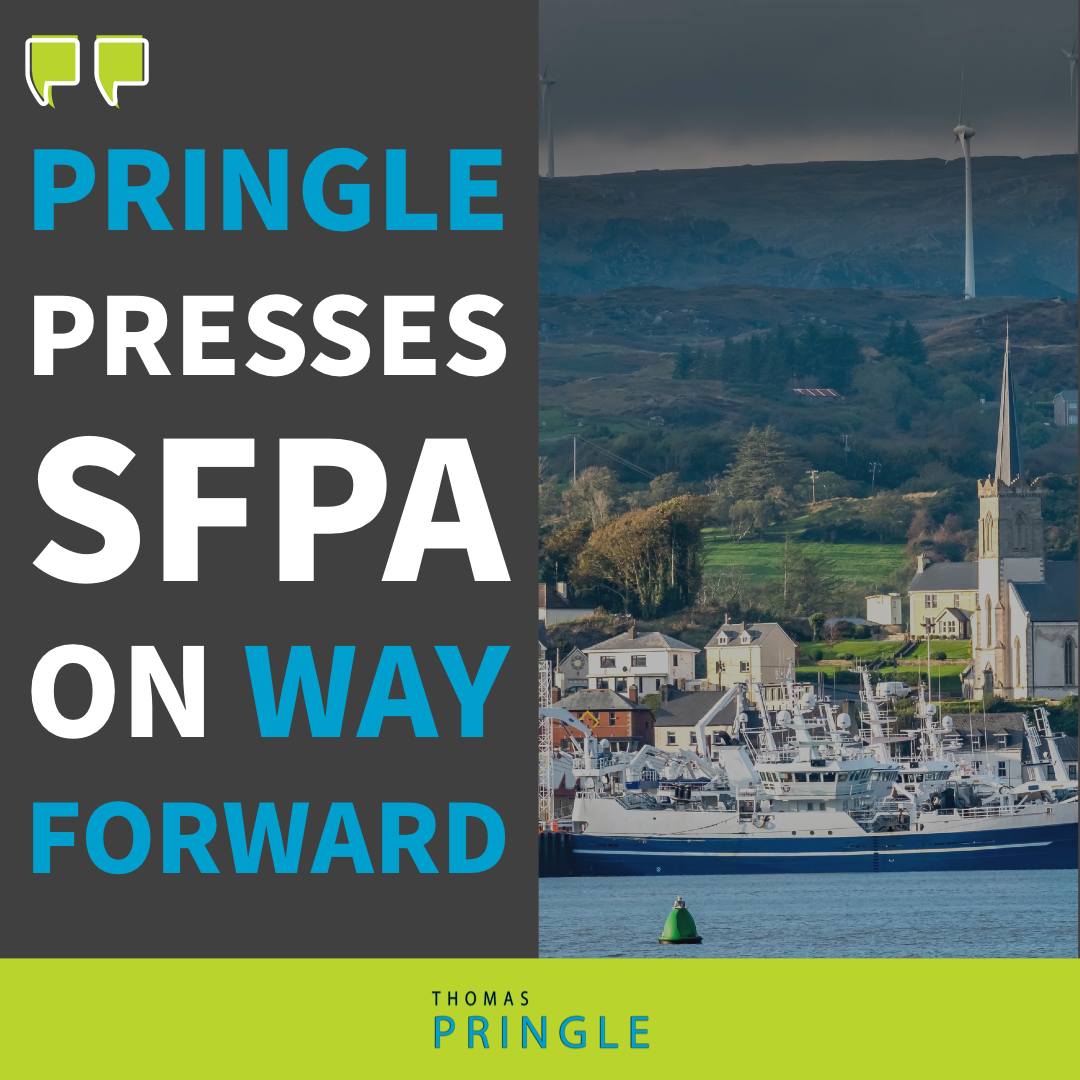- Pringle: We need a policy that recognises the importance of inshore fishing
- Pringle: Disabled people and carers face crisis of State neglect
- Pringle: Failed FF/FG housing policies forcing people to put their lives on hold
- Pringle welcomes Donegal council motion on Occupied Territories Bill: ‘We cannot stand by in the face of genocide’
Pringle presses SFPA on way forward
- Updated: 20th May 2022

Independent TD for Donegal, Thomas Pringle, pressed the Sea-Fisheries Protection Authority on the way forward to resolve issues around vessels landing catch in Killybegs at an Oireachtas committee meeting this week.
Deputy Pringle questioned the Sea-Fisheries Protection Authority (SFPA) executive chairperson, Paschal Hayes, at Wednesday’s meeting of the Committee on Agriculture, Food and the Marine.
Under questioning from Deputy Pringle, Mr Hayes confirmed that the competence to change the control plan lies with the European Commission, which is now reviewing a draft control plan submitted by the SFPA.
Deputy Pringle said: “The debate is whether the current industry-owned weighting scales can be giving to someone acceptable to the SFPA to own and control for fish landings as well. The SFPA said they are happy to discuss options with the sector and are waiting for the sector to come back with proposals.
“I think the way forward must start with the sector bringing their proposals forward to the SFPA,” he said.
The deputy also noted that “Article 107 of the control plan says 5 per cent of landings have to be checked and it goes in to say ‘all of some landings’ rather than some of all landings, which I believe would help maintain the availability of blue whiting for human consumption.” However, he said, the SFPA said that the wording prevents them from doing anything other than a whole landing of one vessel rather than a portion of each vessel.
Deputy Pringle said it will be around November before pelagic fishing resumes. “There’s time now to resolve things,” he said.
The deputy said: “My town of Killybegs and fishing communities across the country are feeling the pain of these decisions. There needs to be movement to find a solution as a matter of urgency.”



